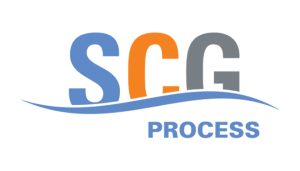The market for ERP for small business solutions has become so saturated, yet SAP Business One for manufacturing has emerged as a trusted solution specifically designed to help small to midsize manufacturers achieve greater efficiencies and reduce costs while driving sustainable growth.
SAP Business One for manufacturing provides industry-specific capabilities that are tailored to the specific needs of manufacturing businesses, helping them integrate key business processes into one centralized system that allows them to make data-driven decisions and improve productivity and profitability.
SAP Manufacturing Guide
- The Role of ERP & SAP in Manufacturing
- The Benefits of SAP Manufacturing Systems
- Key Features of SAP Business One for Manufacturing
- Advanced Capabilities of SAP for Manufacturers
- SAP in Manufacturing Case Studies
- How to Choose the Right ERP for Manufacturing
- Manufacturing ERP Software Comparison
- Getting Started with SAP Business One for Manufacturing
- Start Your Free SAP Manufacturing Demo with aclaros
- FAQs
The Role of Manufacturing ERP Software
Enterprise Resource Planning (ERP) is an integrated software system that enables you to manage and streamline core business processes. The purpose of manufacturing ERP systems is to improve efficiency, data accuracy, and decision-making by providing a centralized platform for real-time information and automation across an organization.
Manufacturing ERP systems are essential because they optimize production processes, improve resource management, and enhance visibility across operations, enabling efficient and cost-effective manufacturing. Manufacturers who aren’t leveraging an ERP today face numerous challenges as they encounter increasing customer demands, complicated supply chains, tight profit margins, fragmented data and inefficient processes.
What is SAP in Manufacturing?
SAP has been a leader in the ERP space for over 50 years. In fact, 98 of the 100 largest companies in the world use SAP, which gives them the unique opportunity to curate the best practices for each business process across a number of critical industries including manufacturing.
One of the key benefits of this rich history and depth of experience is SAP’s ability to acquire and develop a strategy for a pre-configured ERP that is specifically designed for small and mid-sized companies.
SAP Business One is a transformative ERP for manufacturing that offers streamlined operations, inventory efficiency, and valuable insights. By establishing a unified platform that can enhance production planning and shop floor operations, streamline inventory management by automating processes, and deliver predictive analytics in manufacturing to address potential challenges and capitalize on opportunities, SAP for manufacturing enables you to stay ahead of the curve by taking advantage of ever-evolving technologies.
Why Choose SAP Business One for Manufacturing?
SAP Business One is a comprehensive ERP solution tailored for small to mid-sized manufacturers, providing tools to streamline production, manage inventory, and optimize supply chain operations. It integrates real-time data, enabling better decision-making, cost control, and improved resource planning.
With features like production scheduling, MRP, and quality control, SAP Business One can be revered as the best ERP for small manufacturing businesses as it addresses the unique needs of growing manufacturers, ensuring scalability, and cost-effectiveness.
Benefits of SAP Business One for SME Manufacturing Businesses
SAP Business One is a transformative ERP for small manufacturers, offering streamlined operations, inventory efficiency, and valuable insights. Let’s take a deeper look at each of these benefits.
Image source: Canva
A Centralized Platform: SAP Business One for manufacturing consolidates business functions like production planning, order processing, inventory management, and financial management onto a single platform. This eliminates the need for multiple systems and manual data entry, leading to improved accuracy and reduced errors
Enhanced Production Planning and Shop Floor Control: SAP Business One for manufacturing offers robust production planning capabilities, including the out-of-the-box MRP and Intelligent forecasting functions. This helps manufacturers optimize production schedules, manage resources more effectively, and minimize downtime.
Efficient Inventory Management: SAP Business One for manufacturing provides real-time visibility into inventory levels, helping manufacturers maintain optimal stock levels, avoid stockouts, and reduce carrying costs. Its advanced features include lot tracking, expiration date tracking, and barcode scanning.
Mobile Access: SAP Business One offers mobile access, enabling you to manage your business on the go.
Integration: SAP Business One can be integrated with virtually any other system, such as CRM, eCommerce, Point of Sale (POS), industry-specific solutions, etc. to create a seamless end-to-end and best-of-breed environment.
Scalability: SAP Business One truly offers a platform for growth; it will grow with your business as you continue to evolve, accommodating changes in volume, complexity, and geographical scope.
Predictive Analytics: SAP Business One for manufacturing can be used to analyze historical data and predict future trends, enabling manufacturers to proactively address potential challenges and capitalize on opportunities.
Data-Driven Decisions: SAP Business One for manufacturing offers powerful reporting and analytics tools, allowing manufacturers to gain valuable insights into their business performance. This helps them identify areas for improvement, optimize processes, and make data-driven decisions.
Customer-Centric Operations: SAP Business One for manufacturing provides a 360-degree view of customers, enabling manufacturers to personalize their interactions, improve customer satisfaction, and drive sales.
Mobile Access: SAP Business One offers mobile access, enabling you to manage your business on the go.
Integration: SAP Business One can be integrated with virtually any other system, such as CRM, eCommerce, Point of Sale (POS), industry-specific solutions, etc. to create a seamless end-to-end and best-of-breed environment.
Scalability: SAP Business One truly offers a platform for growth; it will grow with your business as you continue to evolve, accommodating changes in volume, complexity, and geographical scope.
Key Features of SAP Business One for Manufacturing
For manufacturers to continue to thrive, let alone survive in today’s ever-changing landscape, they must focus on finding multiple avenues to achieve optimizations across their operations. SAP Business One comes equipped with out-of-the-box modules that are tailored to the specific needs of small to mid-sized companies that inherently drive manufacturing automation including:
Advanced Capabilities of SAP for Manufacturers
Advanced Production Scheduling (APS)
APS tools provide added value to manufacturing environments by improving resource utilization in the allocation of machines, labour, and materials. It allows for complex, multi-level scheduling on a dynamic basis to quickly respond to changes due to fluctuations in demand, equipment breakdowns, or material shortages. Furthermore, APS has the ability to integrate with ERP and MES systems giving you real-time updates on production processes.
Shop Floor Data Collection
The process of collecting and recording real-time data from the shop floor to gain visibility into manufacturing operations. This includes tracking things like machine performance, labour time by clocking in and out of specific jobs or work orders, production output, material output and waste. The goal is to gather accurate production data for reporting and analysis.
Improve Quality Control
Refers to the process of supporting the collection of individual items or testing, batches and serial numbers. It also includes quality control orders for goods receipt for purchase orders, operations, finished goods, returns and reports.
Manufacturing Execution Systems (MES)
MES is a comprehensive system that manages and controls entire shop floor operations by connecting directly to the machines on the floor. It uses tools like IoT, and connects directly to shop floor equipment to aggregate and analyze data. It can integrate directly into ERP systems making SAP Business One for manufacturing the optimal solution for small and mid-sized manufacturers with complex production requirements.
Real-World Applications of SAP in Manufacturing

Fortress Technology:
Enhancing Production Precision
Fortress Technology implemented SAP Business One to transform its production. It attained higher precision and compliance by automating planning and improving inventory management.

Smith Cameron Group of Companies:
Demonstrates Resilience
Smith Cameron underscores the importance of selecting the right implementation partner and leveraging customizable solutions like SAP Business One along with industry-specific add-ons for more complex requirements to navigate industry challenges and foster business growth.

American Insulated Glass (AIG):
Creates a Best-of-Breed Ecosystem
AIG selected SAP Business One and aclaros based on the need to manage custom orders efficiently and accurately, particularly in a complex industry like glass manufacturing. Following the acquisition of multiple companies over a short period of time, inconsistencies in reporting created the need for consolidation. By seamlessly integrating SAP B1 with their industry-specific manufacturing solution, they changed the game allowing them to grow 300% over three years.
How to Choose the Right ERP for Manufacturing
Choosing the right ERP for manufacturing companies is crucial for streamlining operations, improving efficiency, and ensuring scalability. With so many options to choose from, it’s essential to evaluate key factors such as industry-specific features, scalability, how customizable it is, partner experience and reputation, integration capabilities, and cost.
The following section will help manufacturers identify what’s most important when choosing the optimal ERP solution for your business. Let’s expand on these factors more below:
Factors to Consider When Evaluating Manufacturing ERP Systems

Image source: Canva
SAP Business One vs Other ERP Solutions
The number of manufacturing ERP software to choose from seems endless with solutions ranging from generalist, industry-specific or niche providers, open sourced systems, and even custom-developed platforms. However, not all ERPs are created equal; the differences between some system capabilities can be quite stark, while in other cases, functionalities are relatively similar and the key differentiator lies in the implementation and support partner you ultimately select.
When it comes to comparing SAP Business One with other competitors, it is important to make sure you are comparing apples to apples. There are a number of solutions that we compete with daily that offer similar capabilities at a similar price point. Learn more about how SAP B1 stacks up against other manufacturing operations management software in our comparison guides:
- SAP Business One vs. Odoo
- SAP Business One vs. Acumatica
- SAP Business One vs. NetSuite
- SAP Business One vs. Microsoft Dynamics Business Central
At the end of the day, SAP Business One for manufacturing stands apart when it comes to flexibility, scalability, extensibility, and go-to-market strategy. SAP does not sell SAP Business One directly, they use their Partner eco-system to sell, implement and support the solution. There is only one Partner of Record for each customer at one time so your communication is simple and streamlined.
Getting Started with SAP Business One for Manufacturing
Identifying which ERP solution is best suited for your operations is only half the battle. The other half is arguably more important: choosing the right ERP implementation Partner who can also support you long-term. Your ERP Partner should provide:
✓ Industry & Technical Expertise
✓ Communication & Collaboration
✓ Project Methodology
✓ Post-implementation Support
✓ Client References (Proven Track Record)
So, you’ve made the excellent decision to partner with SAP Business One and aclaros—now what? The process can feel overwhelming at the start, but having a great ERP partner means you are setting realistic expectations from the very beginning. Using a systematic approach that takes you through the five phases of the ASAP implementation methodology is a crucial next step.
Here’s what you should expect in your first 30, 60, and 90 days after selecting your ERP vendor and onboarding to a manufacturing ERP like SAP B1 with aclaros.
FAQs
What is SAP used for in manufacturing?
SAP Business One for manufacturing is a powerful manufacturing management software that helps streamline and optimize key business operations. It provides manufacturers with a solid foundation for all of their back-office related processes such as accounting, inventory & warehouse management, customer relationship management, quoting & estimating, supply chain management, production planning & scheduling, reporting and much more.
By leveraging SAP manufacturing capabilities, businesses can improve efficiency, reduce costs, and gain real-time insights into production workflows, ensuring seamless operations from raw materials to finished products.
What is ERP in the manufacturing industry?
Manufacturing ERP is a software solution that integrates and streamlines various business processes across an organization. It is often referred to as the central nervous system of a manufacturing company.
Which SAP module is used in the manufacturing industry?
The majority of SAP Business One modules that are part of its digital core as outlined previously are often needed by companies in the manufacturing industry. Additionally, Manufacturers often rely on SAP Business One’s core modules for Fixed Assets management, project management, and MRP. In some cases, an advanced manufacturing add-on may also be required to meet more complex manufacturing needs.
How can SAP Business One help improve my manufacturing business’s efficiency?
SAP Business One helps improve a manufacturing company’s efficiency by streamlining workflows across your organization, automating manual tasks, optimizing inventory management, providing real-time data for improved visibility, and enhancing production-related activities.
How does SAP Business One support real-time decision-making in manufacturing?
SAP Business One supports real-time decision-making in manufacturing by providing real-time data for instant visibility into inventory levels, production schedules, and financial performance. Additionally, with its interactive dashboards, KPIs are displayed in real-time to give you an instant pulse on the business’s performance. This empowers manufacturers to respond quickly to changes, adapt to unexpected events, proactively address any problems that may arise, and make more informed decisions.
Can SAP Business One scale as my manufacturing business grows?
SAP Business One is among the most scalable solutions for small and mid-size manufacturers. With its Digital Core, every manufacturer will need to implement the accounting, inventory management, production, sales, and purchasing modules at the very least. However, with SAP Business One’s modular structure, companies can start small by keeping the project scope to the bare minimum and then grow into the other core modules over time.
The core system is packed with flexibility with a high degree of configurability as well as customization tools, if necessary. Moreover, with SAP’s mature partner ecosystem, there are hundreds of SAP-certified add-on modules that extend the core functionality to deliver more complex capabilities. With SAP’s scalable user licenses, it is very easy to add licenses as your workforce grows. Finally, SAP’s integration capabilities are extremely robust allowing you to integrate into virtually any other system delivering a best-of-breed environment.


